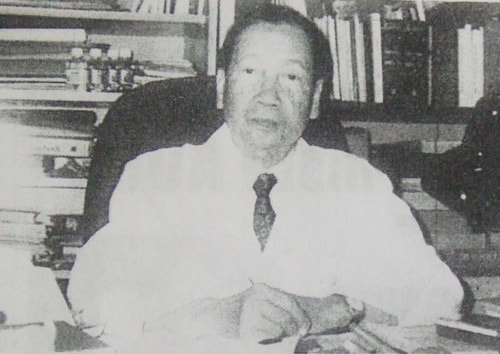Population and aspirations of the elderly
(Baonghean.vn) - According to scientifically based statistics, by the end of the 20th century, the average life expectancy of people...
(Baonghean.vn) - According to a scientifically based statistic, by the end of the 20th century, the average life expectancy of people around the world increased by 20 years. Along with other achievements of the century, this is a very significant achievement, in terms of society, humanity and biology. However, a paradox has appeared, that at the same time as the birth rate has slowed down (some countries even reduced it), the increasing life expectancy has caused the world's population to age rapidly. It is estimated that in the 21st century and beyond, the proportion of elderly people aged 60 and over, compared to the remaining population, will account for 1/14 to 1/4.

The late Professor - People's Teacher Pham Khue, President of the Vietnam Association of the Elderly, is a prestigious Gerontologist.
Each person approaches old age differently. It can be said that each person's aging is individual, diverse, and is the result of a synthesis of many factors. Therefore, if we closely follow that progression, each science has and will have its own, specific approach. Biology, Psychology, Anatomy, Physiology, Sociology, Geography, Demography, Gerontology... all take old age as the object of research. Particularly with Demography, if we study it, we will find many interesting and useful things.
Instead of studying the aging of individuals, Demographers use data drawn from population surveys, on a large scale, mortality statistics and analyze the aging of a specific population... From the above data, they propose the concept of average life expectancy, or the concept of life expectancy at different ages. To give an example: in Western countries, life expectancy from birth has nearly doubled in the past two centuries; this increase is less proportional than in older ages. Life expectancy is not evenly distributed among different occupational and social groups, and the difference between men and women is even greater.
In most industrialized countries, along with the decline in birth rates, social progress and medical achievements... there is a slow but steady increase in the proportion of elderly people in the population. This is called the phenomenon of population aging. The population pyramid is uneven during and after the war, in poor, developing or developed countries. We should not think that the problem of old age is a problem of only developed countries. It is even more important to pay attention when humanity is witnessing the current rapid acceleration of aging. People from 60 to 80 years old can still be self-reliant, while the elderly over 80 will have to rely mainly on relatives and the community. The elderly in Vietnam are generally not outside this consequence, so we need to foresee it to have appropriate solutions!
The late Professor Pham Khue, President of the Vietnam Association of the Elderly, is a prestigious Gerontologist. He believes that Gerontology is an interdisciplinary subject that specializes in studying issues related to old age, thereby finding ways to overcome and limit the disadvantages of old age, promoting human strengths and potentials. Professor Pham Khue has devoted a lot of time, effort, and intelligence to realizing the ambition of "increasing the years of life and at the same time increasing the vitality of the years", one of the key aspects of which is to ensure a harmonious and healthy life between generations.
Kim Hung






